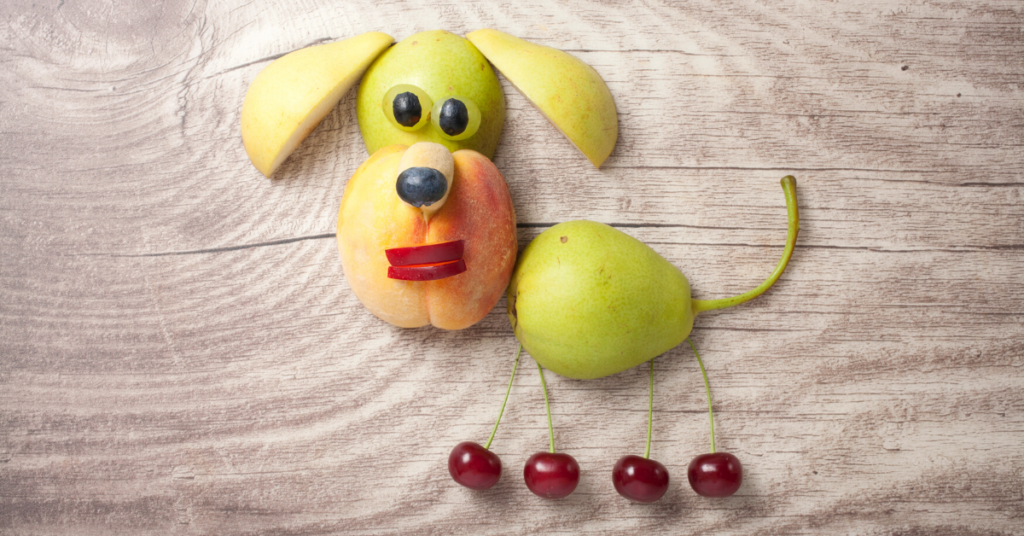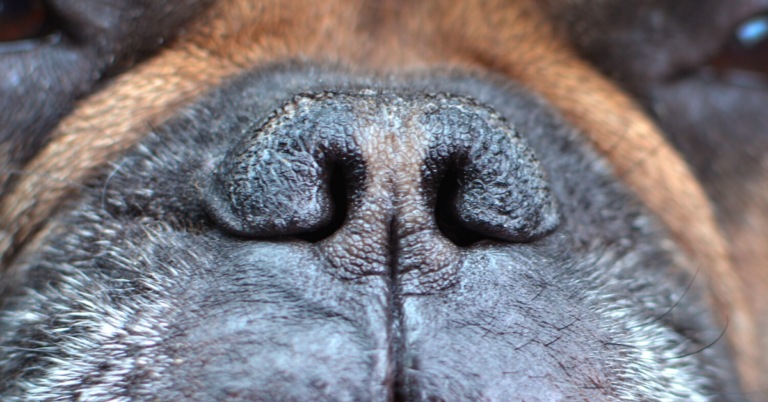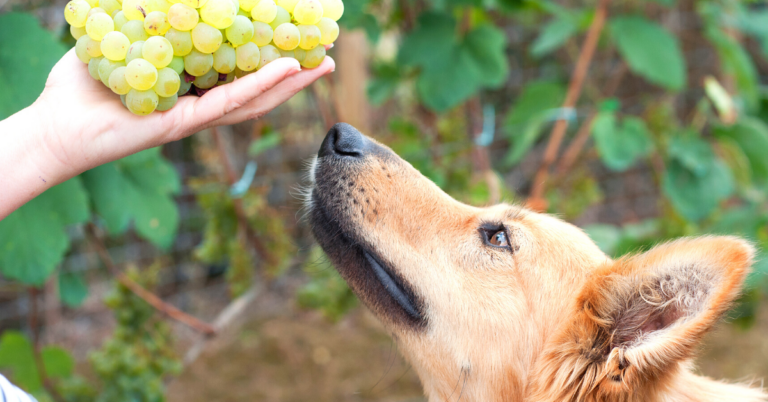What Fruits Can Dogs Eat?
What fruits can dogs eat? You probably want to share your fruit snack with your furry friend sometimes. However, not all fruits are safe for dogs to eat unfortunately.
Dogs digest food differently than humans, and consuming the incorrect foods can lead to long-term health issues and, in the worst-case scenario, death.
Dogs do not require fruits or vegetables as part of their diet because they are omnivores, but a treat of a fruit or vegetable is OK.
So, can dogs eat fruits? Continue reading to learn which fruits you can feed your dog in moderation and which you should avoid.
What Fruits Can Dogs Eat?

Fruits are high in vitamins, minerals, and antioxidants, all of which are beneficial to your dog’s health. Some fruits are superfoods that can help fight cancer.
Other fruits, on the other hand, can help to boost their immune system, enhance their complexion, decrease inflammation, and promote digestion.
However, are all fruits safe for your dog? While many fruits are safe for dogs to eat, some are toxic. Avocados and grapes, for example, are off limits to dogs, as are the pits in cherries and plums.
With this in mind, it’s critical to understand which fruits dogs may consume and which are potentially harmful to their health.
Apples
Apples are safe for dogs to consume. Apples are a great source for vitamins A and C, as well as fiber, and are good for your dog.
Because they are low in protein and fat, they are an ideal snack for older dogs. Just make sure the seeds and core are removed first.
Try freezing them for a refreshing summer snack. It’s also used as a flavoring in apple-flavored dog treats.
Bananas
Bananas are safe for dogs to consume. Bananas are a great healthy snack for dogs when used in moderation.
Bananas are high in potassium, vitamins, biotin, fiber, and copper. Bananas are low in cholesterol and salt, but due to their high sugar content, they should only be given as a treat to your dog, and in small pieces.
Blackberries
These berries are luscious, tasty, and packed with vitamins. Can dogs, on the other hand, eat blackberries? Blackberries are abundant in antioxidants, as well as vitamins A and C, as seen by their deep dark hue.
They help dogs maintain a healthy immune system and skin. Too many blackberries can induce stomach distress and diarrhea, so keep your servings in check.
In terms of serving type, fresh or baked blackberries in modest amounts are fine.
Blueberries
Blueberries are safe for dogs to consume. Blueberries are an antioxidant-rich superfood that protects cells in both humans and dogs.
They’re also high in fiber and phytochemicals. Do you want to teach your dog to catch goodies in the air? As an alternative to store-bought goodies, try blueberries.
Melon
Is it possible for dogs to eat cantaloupe melon? Yes, but only in little doses. This fruit has a lot of sugar. Cantaloupe should only be eaten as a treat by diabetic dogs and those who are prone to weight gain.
Remove the seeds from the cantaloupe and chop the fleshy part into slices for your pet. Do not allow your dog to lick the melon skin since it may contain germs.
Cantaloupe rinds, like watermelon rinds, should also be removed to avoid choking hazards.
Cranberries
Cranberries are safe to consume for dogs. In limited amounts, both fresh and dried cranberries are safe to serve to dogs.
In either case, like with any treat, giving cranberries to dogs in moderation is vital, since too much cranberries can cause an upset stomach.
Kiwi
Kiwi is a nutritious fruit for dogs since it provides fiber, vitamin C, and potassium. It also includes antioxidants such as flavonoids and carotenoids. They help to prevent cancer, rejuvenate cells, and improve the immune system.
This refreshing snack is good for the dog’s skin, blood circulation, and digestive system.
Despite the fact that dogs’ nutritional needs differ from humans’, kiwi is a fantastic snack for your dog.
Coconut
Coconut oil has been advocated for a variety of uses, including hot spot treatment, allergies, and canine dental care.
So it should come as no surprise that, in moderation, coconut flesh may be a healthy treat for dogs.
Coconut’s components are reported to have antibacterial, antiviral, antifungal, and anti-inflammatory effects, among other things.
Coconut is also abundant in antioxidants, which can aid in the overall development of the immune system.
Coconut, like many other fruits, is high in fiber, which helps aid digestion—again, moderation is crucial. Too much fiber might cause stomach problems.
Mango
Mangoes are safe for dogs to consume. This refreshing summer delight is high in four vitamins: A, B6, C, and E.
They also include potassium as well as beta- and alpha-carotene. Remember to remove the hard pit first, since it contains small levels of cyanide and can be a choking hazard, as with other fruits.
Because mangoes are high in sugar, they should only be consumed on rare occasions.
Oranges
Oranges are safe for dogs to consume in small quantities. According to vets, dogs can eat oranges, although they may not like any citrus with a strong fragrance.
Oranges are high in vitamin C, potassium, and fiber, and the juicy flesh of an orange may be a delightful treat for your dog in modest amounts.
Don’t feed your dog large amounts of orange skin, pith, or seeds to your dog. These orange portions contain an oil that might irritate a dog’s stomach and should be avoided.
Pear
Pears are safe for dogs to consume. Pears are abundant in copper, vitamins C and K, and fiber, making them an excellent snack.
It’s been hypothesized that eating the fruit might cut your chances of suffering a stroke in half.
Simply chop pears into bite-size bits and remove the pit and seeds first, as the seeds may contain cyanide levels.
Avoid feeding your dog canned pears that have been soaked in sweet syrups.
Pineapple
Pineapple is safe to consume for dogs. If the prickly exterior peel and crown are removed first, a few slices of pineapple make a fantastic sweet treat for dogs.
Vitamins, minerals, and fiber abound in this tropical fruit. It also includes bromelain, an enzyme that aids protein absorption in dogs.
Strawberries
Strawberries are safe for dogs to consume. Strawberries are a good source of fiber as well as vitamin C.
They also include an enzyme that can aid in the whitening of your dog’s teeth when he or she chews them. Because they contain sugar, they should be consumed in moderation.
Watermelon
Watermelon is safe for dogs to consume. The peel and seeds should be removed first, since they might cause intestinal obstruction, but watermelon meat is healthy for dogs otherwise.
Vitamins A, B-6, and C, as well as potassium, are abundant in this fruit. Because watermelon is 92% water, it’s an excellent method to keep your dog hydrated on hot summer days.
Raspberries
Dogs can eat raspberries, yes. In moderation, raspberries are good. They are high in antioxidants, which are beneficial to dogs.
Sugar and calorie content are minimal, while fiber, manganese, and vitamin C content is high.
Raspberries are particularly beneficial to elderly dogs since they have anti-inflammatory qualities that can aid aging joints.
However, because raspberries contain trace quantities of xylitol, feed your dog no more than a cup at a time.
What Fruits Can’t Dogs Eat?

Apricots
Apricots are not safe for dogs. The pit is dangerous, even if the fruit is delicious and high in potassium and beta carotene.
Apricot pits are a source of deadly cyanide, much like apples, plums, and peaches. To make matters worse, the pit is just the exact size to get lodged in a little dog’s intestine, resulting in a serious obstruction.
Apricots can also induce diarrhea and stomach irritation if consumed in excess by your dog. When offering apricots to your dog as a compromise, always cut the fruit of the pit.
Avocado
Avocados contain persin, which is poisonous to dogs. While the skin carries the largest quantity of persin, even the meat contains too much for a dog to manage.
Even though dogs are the most resistant to persin of all species, the danger isn’t worth it since avocado contributes too little to adequate canine nutrition.
Vomiting and diarrhea are two symptoms of persin poisoning. If your dog consumes avocado by mistake, get guidance from your veterinarian.
Cherries
While cherry flesh is theoretically OK for dogs, the high cyanide concentration in the stems, leaves, and pit makes this fruit unfit for them.
The pits not only contain cyanide, which causes respiratory problems and death, but they also obstruct the gut. This affects the gut wall and can be lethal if left untreated.
If your dog eats cherries, check for symptoms like dilated pupils, trouble breathing, and red gums, which might indicate cyanide poisoning.
Dates
Dates aren’t poisonous, but they’re not suggested as a dog treat. For starters, just the meat is edible and may provide some nutritional value.
A dog who eats whole dates, including the pits, runs the risk of developing a major intestinal blockage.
Dates are also heavy in fiber and sugar, so eating more than a handful might induce diarrhea in dogs.
Don’t be alarmed if your dog manages to get a date now and again, but it’s not something you should promote.
Figs
Is it okay for dogs to eat figs? They’re one of those fruits that dogs can only consume in moderation. Dogs should only be given one or two fresh figs per week due to their high fiber content, which causes diarrhea.
Figs also contain ficin, which can cause irritation in certain dogs. Drooling, vomiting, and diarrhea are all symptoms of an allergic response.
If this happens, don’t be alarmed; fig flesh isn’t a poison, only an irritant, therefore the symptoms should go away.
Grapes
Grapes are at the top of the list of fruits that dogs are unable to eat. Grapes and raisins are both extremely harmful to dogs. Even a small amount can induce renal failure in some pets.
The poison has yet to be identified, but that does not change the fact that it is lethal.
Grapes (or raisins) should never be fed to dogs. If your dog ate grapes by mistake, call your veterinarian right away.
Peaches
This fruit contains vitamin A, which can aid in the battle against illness in dogs. While it’s safe to give your dog slices of fresh peach, the pit is a threat once again.
The pit is just the right size to become stuck in the gut and produce a potentially fatal obstruction. In addition, pits contain cyanide. That’s all there is to it.
Plums
Is it possible for dogs to eat plums? The size of the plums in relation to the pit is a concern. The fruit is edible, although there isn’t a lot of it. A dog with its nose in a bowl of plums will eat the pits as well, which can be fatal.
Yes, the pits contain cyanide, but what’s more concerning is that a pit is large enough to obstruct the gut. As a result, plums should be avoided unless the pit is removed beforehand.
When to See a Veterinarian

If your dog ingested a fruit that they shouldn’t be eating, such as grapes and avocado, take them to the vet immediately.
It’s important to know which fruits are dangerous to your dog, to avoid any serious health issues, or in extreme cases, death.
Remember to serve fruit in moderation, especially at first, since they are higher in sugar.







